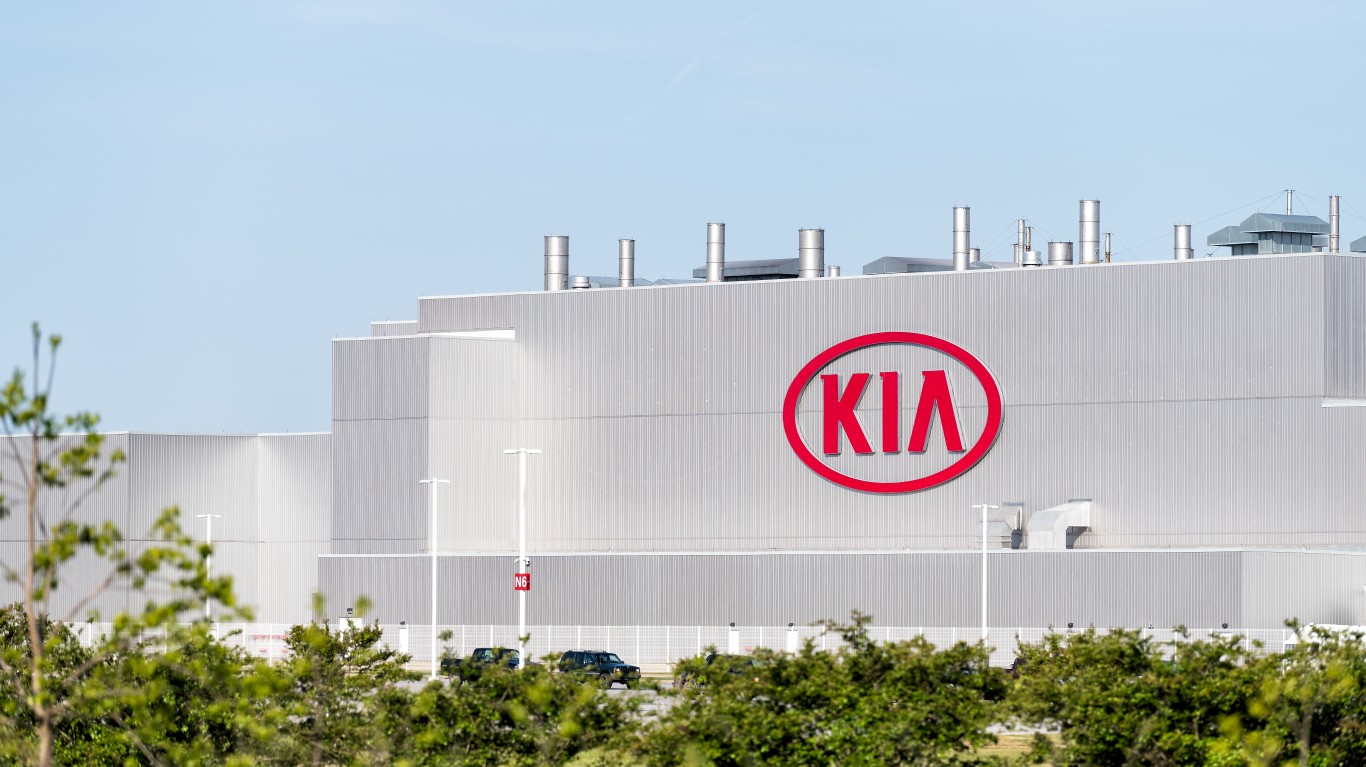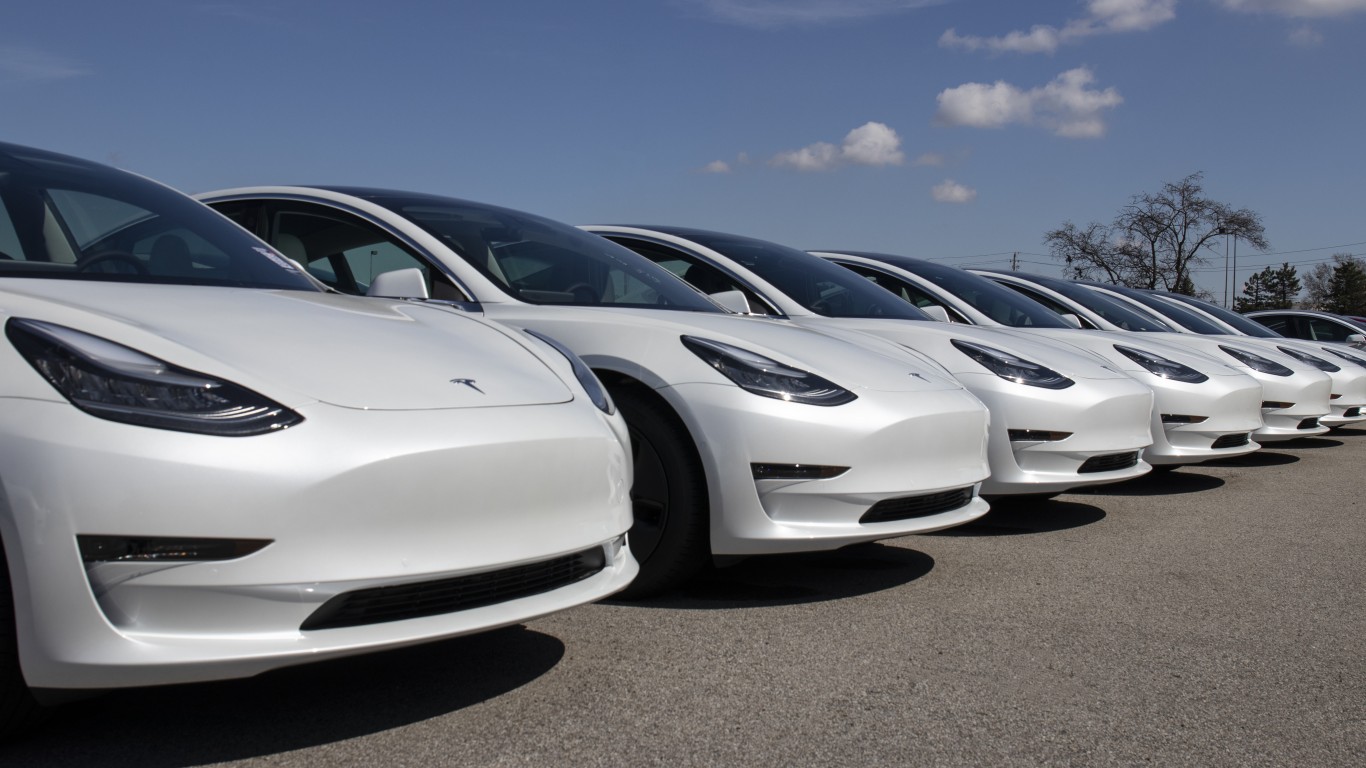
The chatter about a coming announcement from Apple Inc. (NASDAQ: AAPL) that it has struck a deal with automaker Hyundai keeps getting louder. As we noted on Wednesday, the rumor mill began spinning up late last year and the volume knob is now heading toward 11.
[in-text-ad]
CNBC.com, for example, reported on Wednesday that Apple “is close to finalizing” a deal with Hyundai to build the Apple Car at Kia’s assembly plant in Georgia. The vehicle would be Apple-branded and fully autonomous, with production scheduled to begin in 2024. Earlier reports suggested that production of the Apple Car would total 100,000 in 2024.
That’s just three years from now. Does anyone really believe that?
In 2016, Ford’s then-CEO Mark Fields said the company would have robotaxis on the road by 2021. GM had indicated it would have an autonomous vehicle for sale by 2019. Neither prediction has materialized yet and likely won’t in any volume by 2024.
Technology companies are getting another lesson in what it’s like to work in a sector that has multiple regulators and where a faulty system can kill people. Automakers have (or should have) known that all along.
Katie Huberty, an auto industry analyst at Morgan Stanley, in a research note cited by CNBC, noted that the total addressable market for mobility (i.e., self-driving vehicles) is $10 trillion, far larger than the $500 billion total market for smartphones. Apple has about a third of the global market for smartphones and would need only a 2% share of the mobility market to equal the size of Apple’s share of the smartphone market, according to Huberty.
Assuming that the average price of a self-driving light vehicle (car, pickup, sport utility vehicle) eventually reaches $50,000, the value of the total market for light vehicles would represent about $5 trillion of that total, assuming 100 million units are sold. The total market for all new light vehicles in 2020 was around 76.5 million units, down by about 16% from the record sales level of 94.5 million units in 2017. Getting to 100 million all-electric, self-driving light vehicles is going to take at least until 2030, and probably longer.
So what’s different about Apple? One source cited by CNBC said that Apple Cars “will be autonomous, electric vehicles designed to operate without a driver and focused on the last mile.” The term “last mile” refers to delivery operations from a warehouse to a final customer. It might also include robotaxis and does not include long-haul semis.
Apple is a high-end consumer brand, and selling into the delivery market would mean that the company would have to get down in the mud and slug it out with mass-market vehicle makers. There are plenty of those already, and more on the way. Think of Workhorse and Canoo.
To maintain its premium-brand cachet, Apple likely would have to target the high-end of the light vehicle market, and that’s just a subset of the total addressable mobility market. Apple could command a significant chunk of the market for high-end self-driving vehicles, and that would make its efforts to build an Apple Car with Kia worth the time and expense. However, it is a longer-term play. The good news for Apple is that the company can afford the investment as long as its smartphone sales hold up, and there’s no sign yet that those are going to decline significantly.
We should know before the end of this month whether Apple and Kia have struck a deal and what the terms of the deal will be. Then the speculation can begin in earnest.
The #1 Thing to Do Before You Claim Social Security (Sponsor)
Choosing the right (or wrong) time to claim Social Security can dramatically change your retirement. So, before making one of the biggest decisions of your financial life, it’s a smart idea to get an extra set of eyes on your complete financial situation.
A financial advisor can help you decide the right Social Security option for you and your family. Finding a qualified financial advisor doesn’t have to be hard. SmartAsset’s free tool matches you with up to three financial advisors who serve your area, and you can interview your advisor matches at no cost to decide which one is right for you.
Click here to match with up to 3 financial pros who would be excited to help you optimize your Social Security outcomes.
Have questions about retirement or personal finance? Email us at [email protected]!
By emailing your questions to 24/7 Wall St., you agree to have them published anonymously on a673b.bigscoots-temp.com.
By submitting your story, you understand and agree that we may use your story, or versions of it, in all media and platforms, including via third parties.
Thank you for reading! Have some feedback for us?
Contact the 24/7 Wall St. editorial team.



